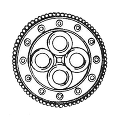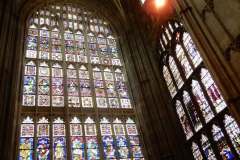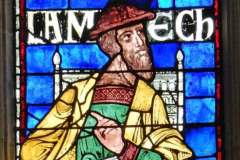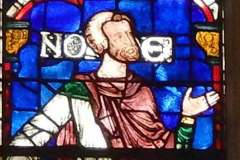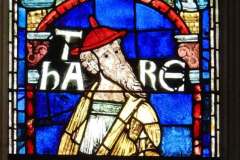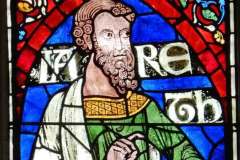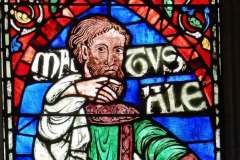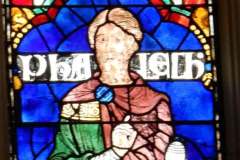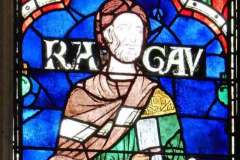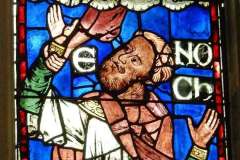The view of the south west transept is dominated by the massive stained glass window on the south side – known as the Great South Window (Image 1). This is the largest window in the cathedral, 55ft high and approaching 25ft wide. It was originally built around 1430, using stone from Caen in France.
In 2009 the fall of a substantial piece of stone from high on the window caused alarm. A major project of restoration, described as one of the greatest conservation challenges of the early 21st century, took place between 2009 and 2016. This cost £2.5 million and proved to be the largest single restoration project in Europe. The window consists of 179 individual glass panels. Masons had to carve 100 new stones to replace defective stonework.
The window includes a collection of emblems, heraldic devices, fragments, and, most importantly, a collection of ‘Ancestors of Christ’ panels, originally placed in the choir clerestory but removed here around 1792.
Look out for:
Impressive examples of medieval glasswork, for example (the following all appear in the lowest, so easist to see, main panels):
- (Image 2) Lamech sits on his high-backed throne – parts of the glasswork here are replacements
- (Image 3) Noah (son of Lamech) gesticulates with his hands as in speech – his upturned head hints at conversation with God and the need to build an ark – note the flowing folds in his robe
- (Image 4) Terah holds a scroll – he was from Ur, a pagan region, and his head twisted awkwardly to the side reflects this
- (Image 5) Jared – father of Enoch – shows a confident pose – note the patterns in his hem and cuffs and the striking treatment of hair on his head and in his beard
- (Image 6) Methesualeh is supposedly the longest living of the Ancestors (969 years) – his image here has been heralded as a supreme example of medieval craftmanship in glass – the ‘fingers stroking chin’ pose emphasises a feeling of contemplation and perfectly catches his mood – the artist’s name is not known but he has been nicknamed ‘the Methusaleh Master’
- (Image 7) Phalec – also holding a scroll – shows a simpler depiction of folds in his clothing and a simpler throne – some have suggested this piece was finished in a hurry!
- (Image 8) Ragau holds his two scrolls
- (Image 9) Enoch looks up to the hand of God reaching through the clouds – for a similar depiction see the Alphege window high above the north choir aisle.
Source: Rackham (1957); Michael (2004) also website of Metropolitan Museum of Art New York
DL (May2021
